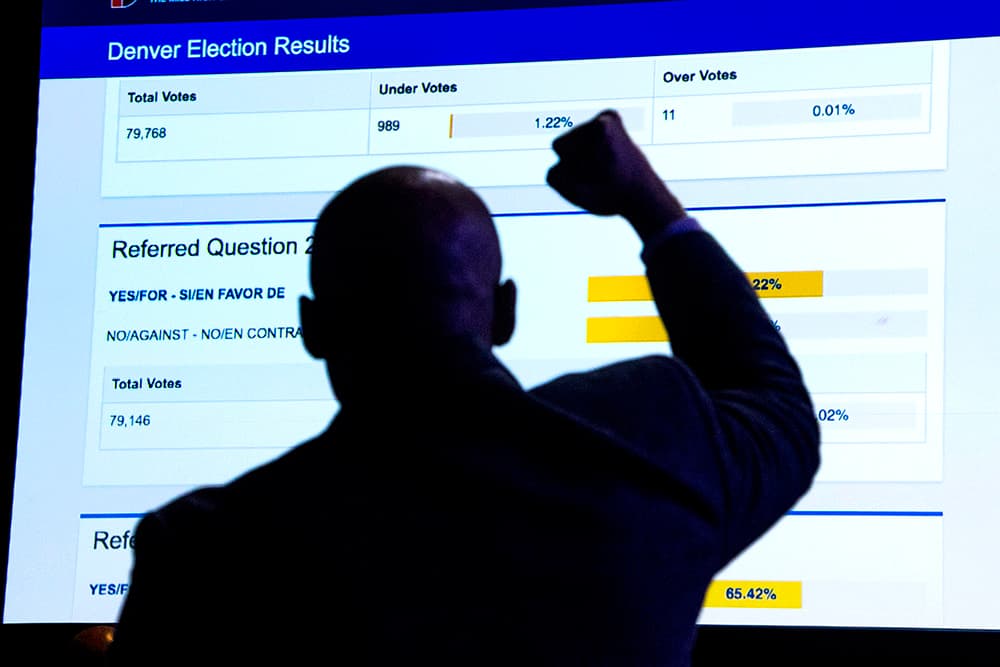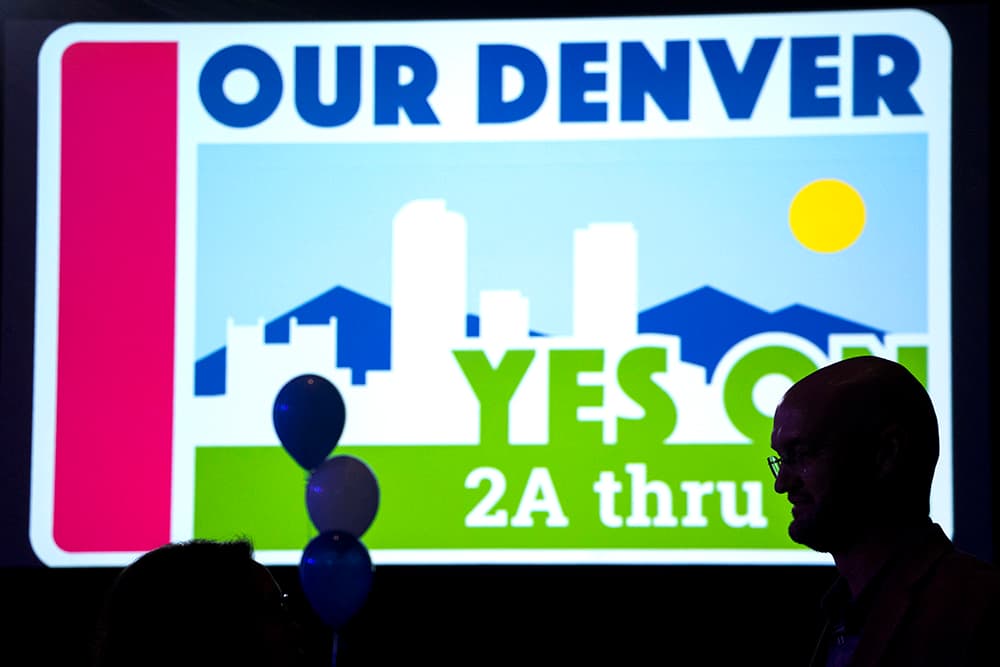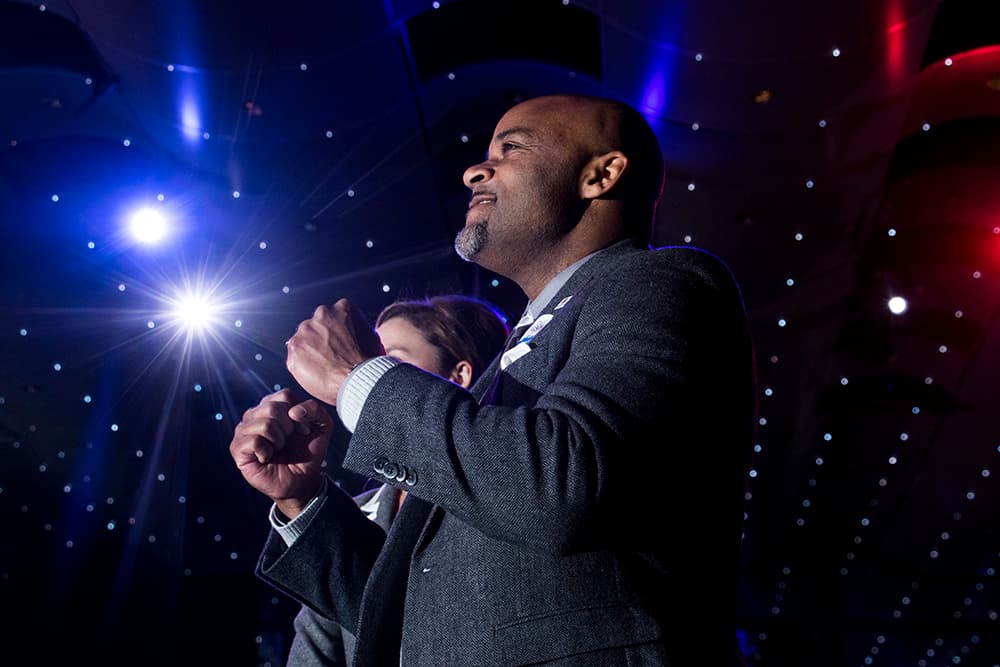
Denver is set to spend nearly $1 billion on 69 projects throughout the city over the next decade after voters approved seven packages of new debt.
Early voting returns showed overwhelming victories for the bond measures, with approval by anywhere from 66 to 73 percent of voters with about 86,000 votes counted as of 10 p.m. The Secretary of State's Office reported that Denver voters turned in at least 112,204 ballots.
"What’s next? Starting tomorrow, we’ll get to work getting these repairs and improvements going -- repairs and improvements that were designed by the people, that are now happening, thanks to the people," said Mayor Michael Hancock in a celebratory speech, adding that the city would try to make sure that the projects hired locally.
Asked for comment, Council President Albus Brooks simply did the cabbage patch dance, swinging his hands in a celebratory hula-hoop-like circle.
"I'm so grateful," he added. "Most of this is going toward neighborhoods that have never seen this kind of investment."
Councilman Jolon Clark was similarly optimistic. "Denver residents have clearly said that they want this, and they want it now,” he said.

The proposal:
The city will take on debt to pay for projects ranging from a $13 million upgrade of the 16th Street Mall to $55 million for bus-rapid transit along Colfax, from a $75 million care center for Denver Health to $38 million for the central library and dozens of other projects. A full list of projects is here.
However, about half of the debt will go to deferred maintenance on existing stuff. Erica deftly explained all this in much deeper detail.
The new debt will not result in a tax-rate increase -- but it also means tax rates aren't decreasing, and increases in property values still could drive tax bills up.
The money:
The "Our Denver" group had raised about $2.4 million as of Nov. 1.
There was no organized, funded opposition.
The supporters:
Some of the supporters were set to receive funding from the bonds, including the Denver Art Museum, the Denver Zoo and others. Others were major corporate players, such as Encana Oil & Gas, DaVita and United.
The Denver City Council voted unanimously to place the bonds on the ballot, though Councilwoman Debbie Ortega said she was disappointed that it didn't include money for supportive housing, and there was some debate over the various projects.












